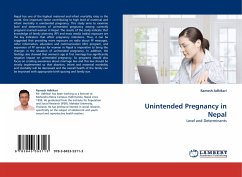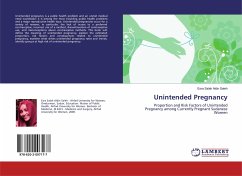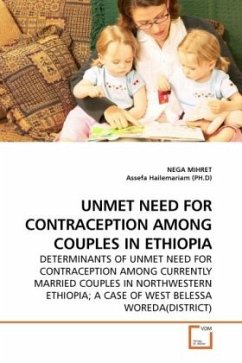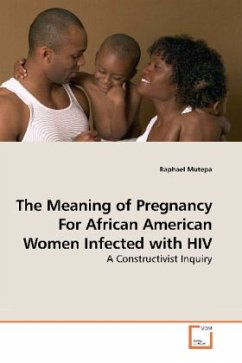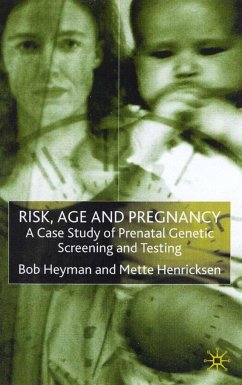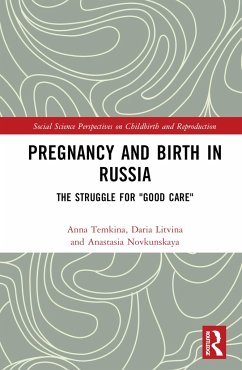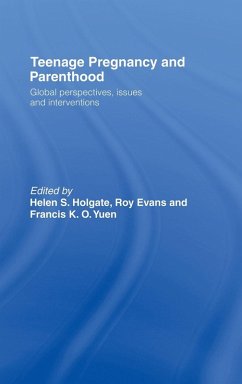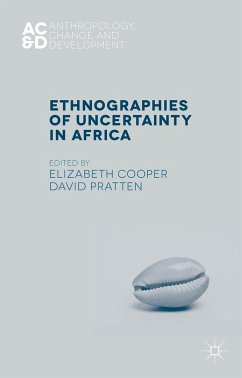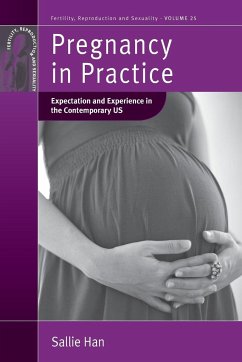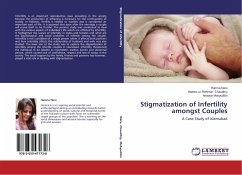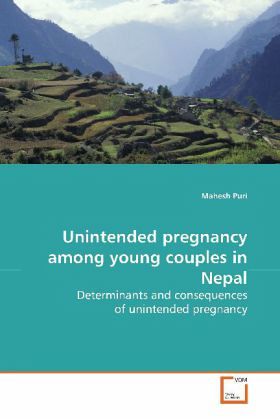
Unintended pregnancy among young couples in Nepal
Determinants and consequences of unintended pregnancy
Versandkostenfrei!
Versandfertig in 6-10 Tagen
52,99 €
inkl. MwSt.

PAYBACK Punkte
26 °P sammeln!
Research findings presented in this book demonstrates the problems involved in the conventional definition of measuring pregnancy intentions and suggests some alternative means of measuring them. The alternative definitions provided in this research address most of the methodological criticisms raised in recent years regarding the measurement of pregnancy intentions. For many years, pregnancy intention has been used as the basis for forecasting fertility and as a means of estimating the unmet need for contraception. Both these measures could be improved through the use of the alternative defin...
Research findings presented in this book
demonstrates the problems involved in the
conventional definition of measuring pregnancy
intentions and suggests some alternative means of
measuring them. The alternative definitions provided
in this research address most of the methodological
criticisms raised in recent years regarding the
measurement of pregnancy intentions. For many years,
pregnancy intention has been used as the basis for
forecasting fertility and as a means of estimating
the unmet need for contraception. Both these
measures could be improved through the use of the
alternative definition(s). This research also paint
a picture of the problems of unintended pregnancy
amongst young couples in Nepal. Despite legalisation
of abortion, unsafe abortion is still not
uncommon. Unsafe abortions are more likely to be
sought by poorer, less educated and less
knowledgeable couples. Lack of financial resources,
socio-cultural practices and the low status of women
are hindering young married women from seeking safe
abortion services. Various factors intervene during
the decision making process that make it dynamic and
situation specific.
demonstrates the problems involved in the
conventional definition of measuring pregnancy
intentions and suggests some alternative means of
measuring them. The alternative definitions provided
in this research address most of the methodological
criticisms raised in recent years regarding the
measurement of pregnancy intentions. For many years,
pregnancy intention has been used as the basis for
forecasting fertility and as a means of estimating
the unmet need for contraception. Both these
measures could be improved through the use of the
alternative definition(s). This research also paint
a picture of the problems of unintended pregnancy
amongst young couples in Nepal. Despite legalisation
of abortion, unsafe abortion is still not
uncommon. Unsafe abortions are more likely to be
sought by poorer, less educated and less
knowledgeable couples. Lack of financial resources,
socio-cultural practices and the low status of women
are hindering young married women from seeking safe
abortion services. Various factors intervene during
the decision making process that make it dynamic and
situation specific.



